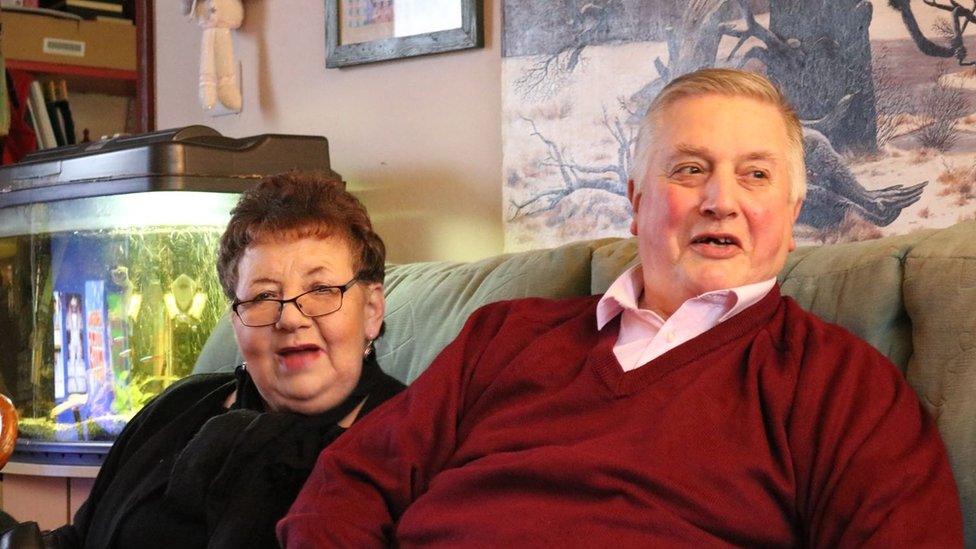Grandfather waits 13 hours for ambulance after stroke
- Published
A man whose 85-year-old dad had to wait 13 hours for an ambulance said it was "the longest night of my life"
A grandfather waited 13 hours for an ambulance after having a stroke and his family fear he may not fully recover.
David Evans, 85, from Mountain Ash, Rhondda Cynon Taf, was at his home when paramedics were called on 25 October.
The first call was made at 18:45 BST but an ambulance did not arrive until 07:45 the next day, with Mr Evans's son Chris describing it as the "longest night of my life".
The Welsh Ambulance Service has apologised for an "unacceptable wait".
His son, 52-year-old Chris Evans, said: "I've never felt so helpless."
The Stroke Association said it was "gravely concerned" about ambulance delays for people having a stroke and has written to the health minister to address the issue.
Chris Evans received a call from his father's neighbour saying they had found him collapsed at his home.
He believes his father had the stroke downstairs and crawled upstairs to access a phone and call for help, as he had carpet burns on his knees and elbow.
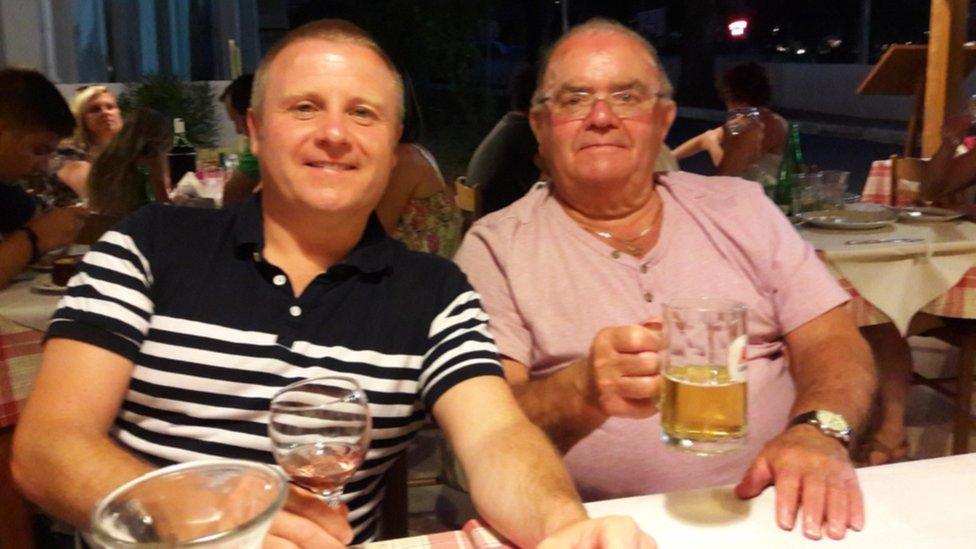
David Evans' son Chris (left) says he has "never felt so helpless" after the 13 hour wait for an ambulance
After moving his father onto a bed, and a further 999 call, Chris Evans said the family were told an ambulance would take five to eight hours.
"We had a clinician call to confirm what we were observing was most probably a stroke and then nine hours into the ambulance wait, I phoned again," he said.
"I was told by the call handler they were very busy and there were people with more life-threatening conditions than my father to see."
Chris Evans said it was not until 07:45 that a paramedic turned up, 13 hours after the initial call.
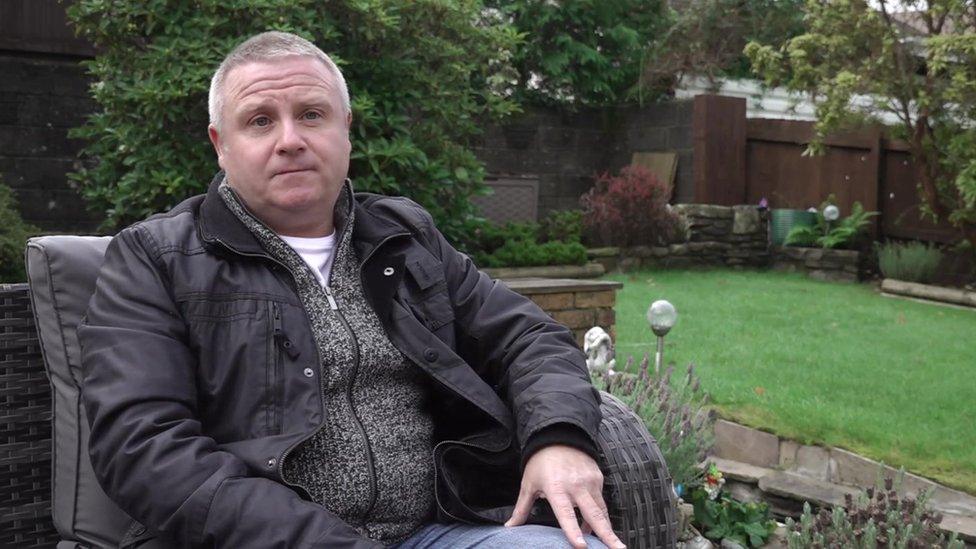
Mr Evans says he was told there were people waiting for an ambulance with more life-threatening conditions than his father
In a statement, the Welsh Ambulance Service said it was not the level of service it aimed to provide.
Darren Panniers, head of service in south-east Wales, said: "We recognise how distressing it is for patients when they have to endure a very long wait. It's not an acceptable position for anyone.
"Prolonged hospital handover delays, high call volume and staff absence have significantly hampered our ability to get to patients quickly in recent weeks.
"In October, we lost more than 18,000 hours waiting to hand patients over at hospitals across Wales.
"On Monday and Tuesday of last week, as Mr Evans waited for our help, we lost more than 840 hours at hospitals in south Wales alone.
"We continue to work with our health board and Welsh Government partners to try to resolve pressures across the entire urgent and emergency care system."
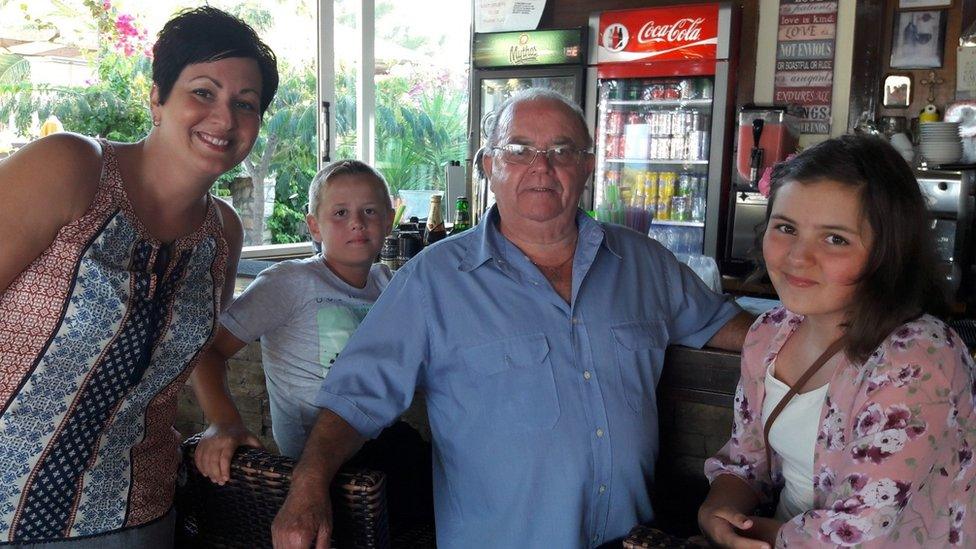
Chris Evans says he has not been able to visit his father due to Covid, and is concerned he will be confused and frightened in hospital
Chris Evans did praise the medical care his father received once he arrived at the Prince Charles Hospital in Merthyr Tydfil.
"The care at the hospital was fantastic. However, there were six ambulances outside the hospital and they were still there when I left two hours later," he said.
"We had waited 13 hours and most of those ambulances were stuck outside the hospital."
He is now fearful his father will not make a full recovery.
A Healthcare Inspectorate Wales (HIW) report recently looked at patient delays between April 2020 and March 2021.
During this period, crews had to wait more than an hour to transfer patients on no fewer than 32,699 occasions.
The performance of the Welsh Ambulance Service - in reaching life-threatening emergency "red" calls within eight minutes - was also the worst on record, beating the previous low last December.
Only 52.3% of calls arrived within eight minutes - the target is 65%. This has not been met since July last year.
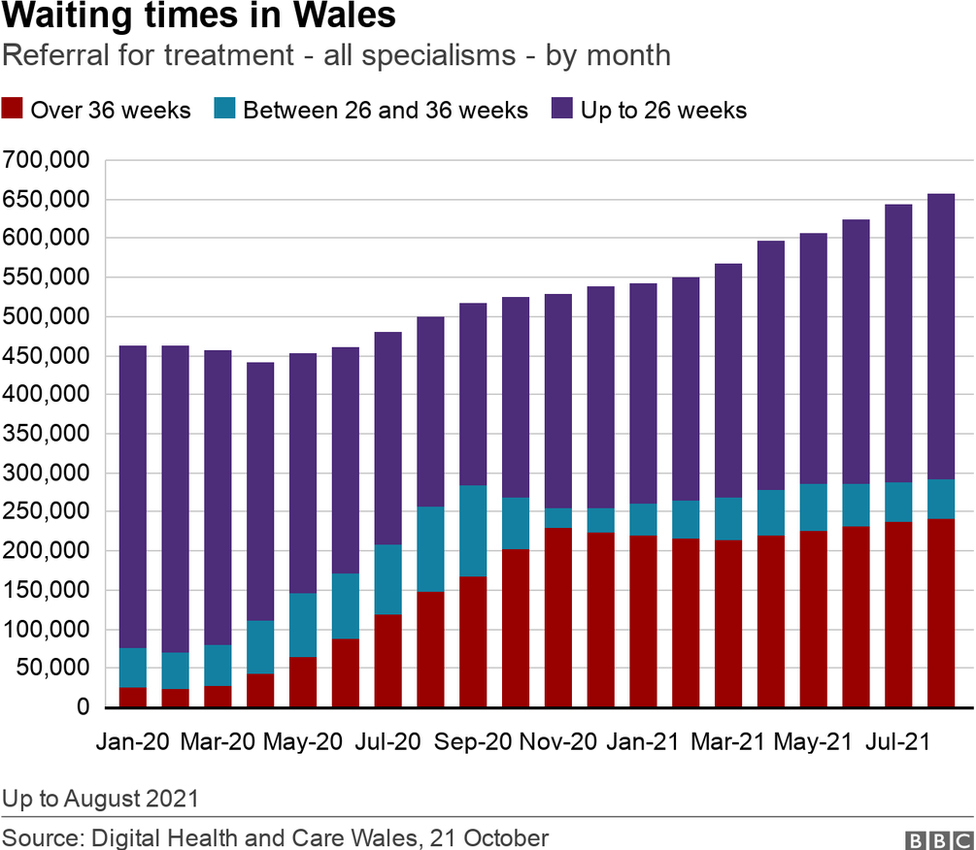
The Stroke Association said people should use the FAST acronym as a simple test.
Face - has their face fallen on one side? Can they smile?
Arms - can they raise both arms and keep them there?
Speech - is their speech slurred?
Time to call 999 if you see any one of these signs
Other stroke symptoms include sudden loss of vision, sudden weakness or numbness on one side of the body, sudden memory loss or confusion, sudden dizziness or unsteadiness, or a sudden fall.
The charity says it is gravely concerned about delays and a stroke should always be classed as a medical emergency.
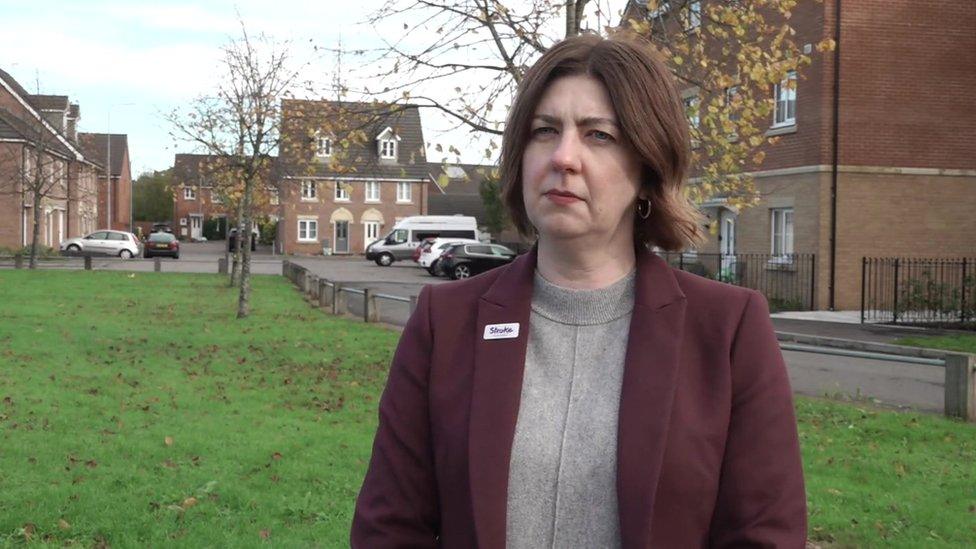
Katie Chappelle said stroke treatments need to be administered within four to four-and-a-half hours to make a difference
Katie Chappelle, director for Wales for The Stroke Association, urged people to call 999.
"Don't wait, don't worry what you might have heard get help immediately because treatments need to be administered in four to four-and-a-half hours to make a difference," she said.
"We are gravely worried about the impact of this pressure on people who are experiencing a stroke.
"We know there's a whole pressure on the whole system and that needs to be addressed as soon as possible so stroke patients don't come to anymore harm."
A Welsh government spokesperson said: "The Welsh Ambulance Service, like all NHS services across the UK, is working hard to respond to the ongoing and significant challenges as a result of the pandemic.
"There is an active delivery plan in place to help manage 999 demand in the community, increase capacity, improve responsiveness and improve ambulance patient handover.
"We recently launched a new national programme to improve the flow of patients through the hospital system and return home when they're ready to do so, alongside £25m in recurrent funding."
- Published7 October 2021
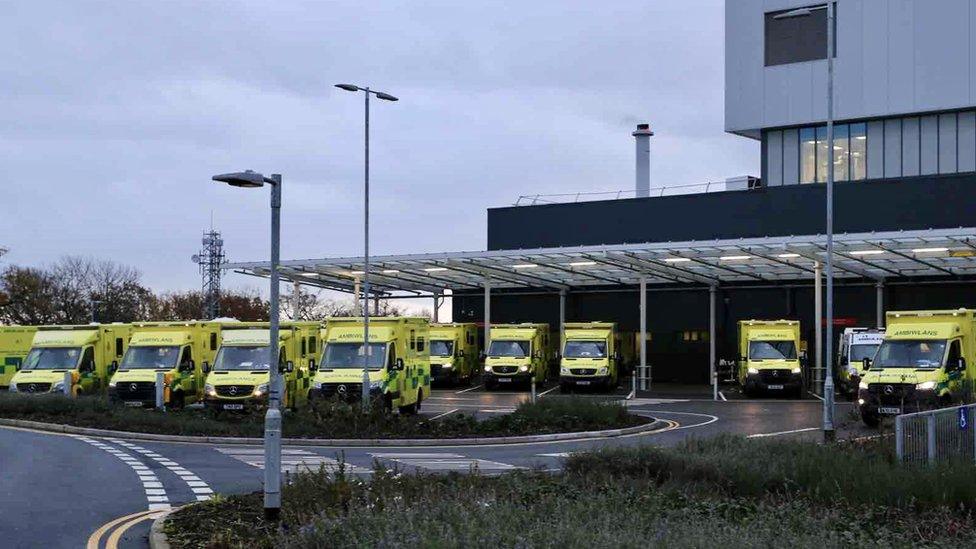
- Published23 September 2021
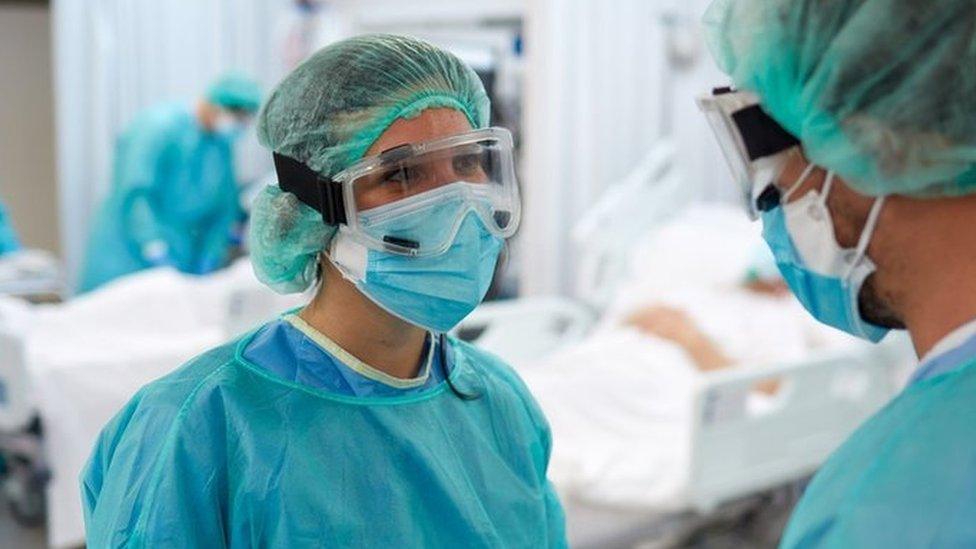
- Published22 September 2021
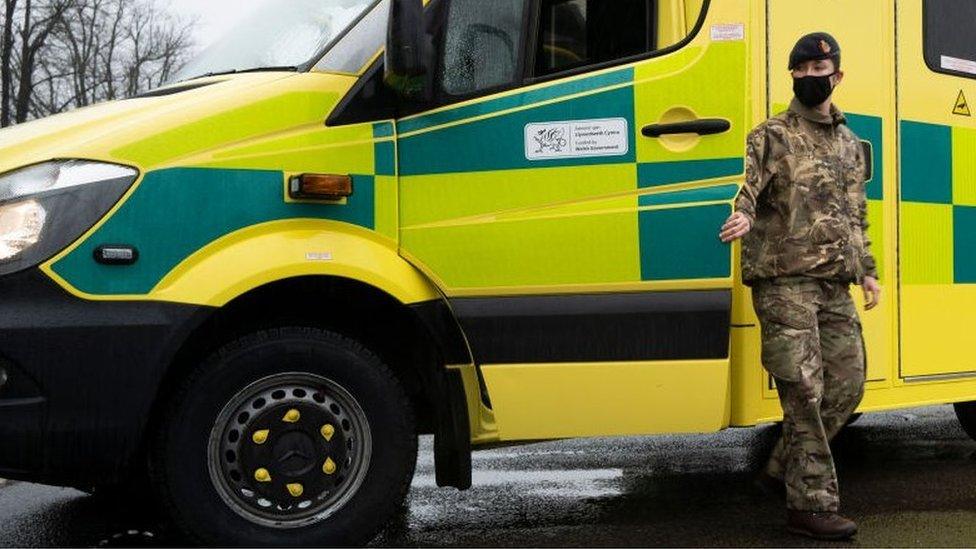
- Published23 September 2021
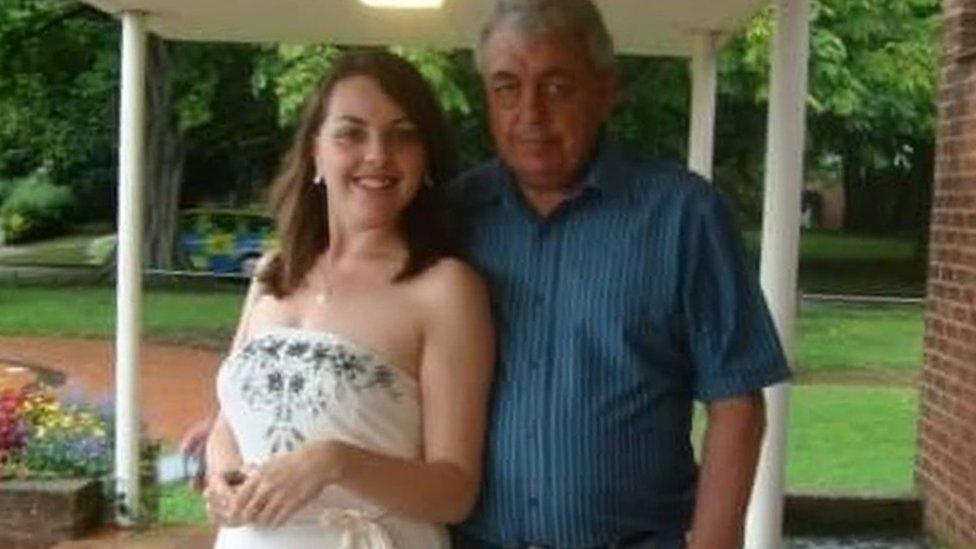
- Published19 August 2021

- Published19 August 2021
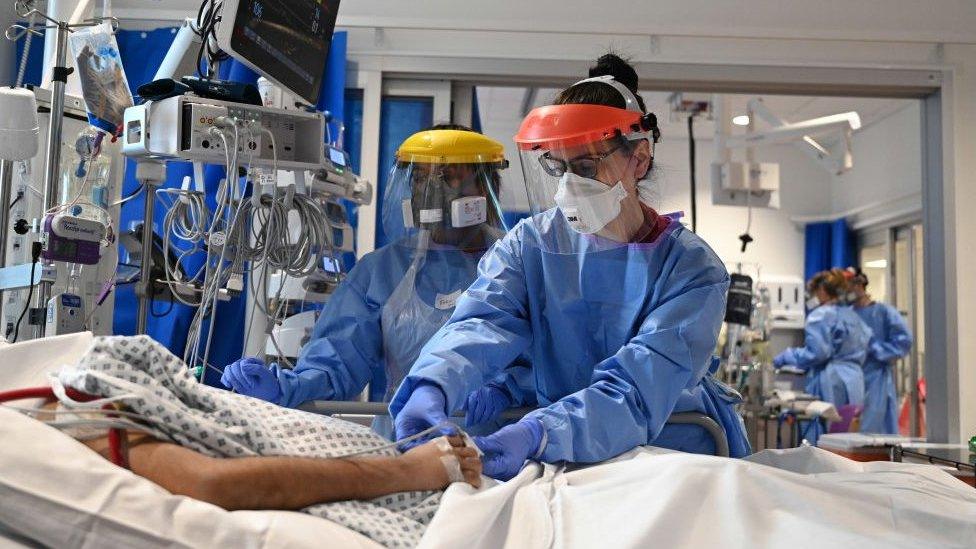
- Published22 July 2021
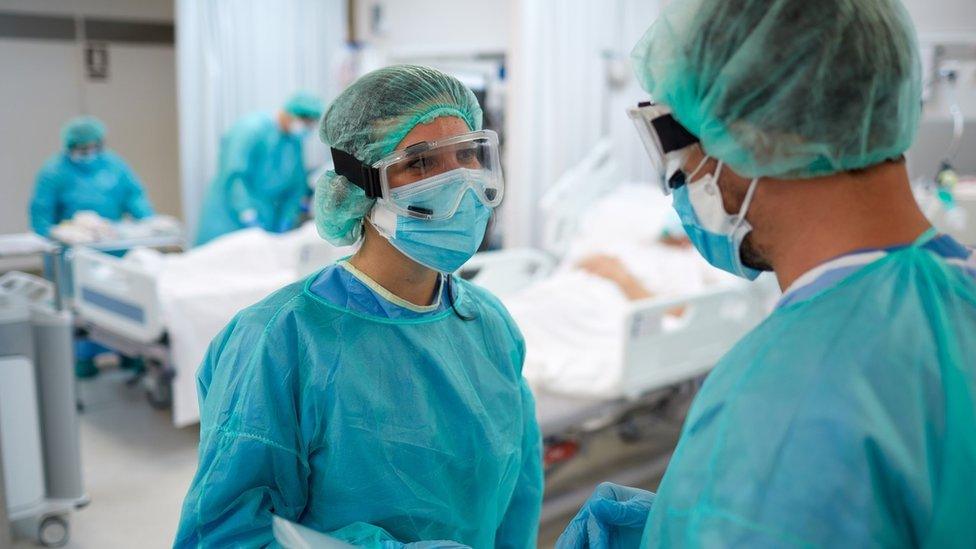
- Published18 February 2021
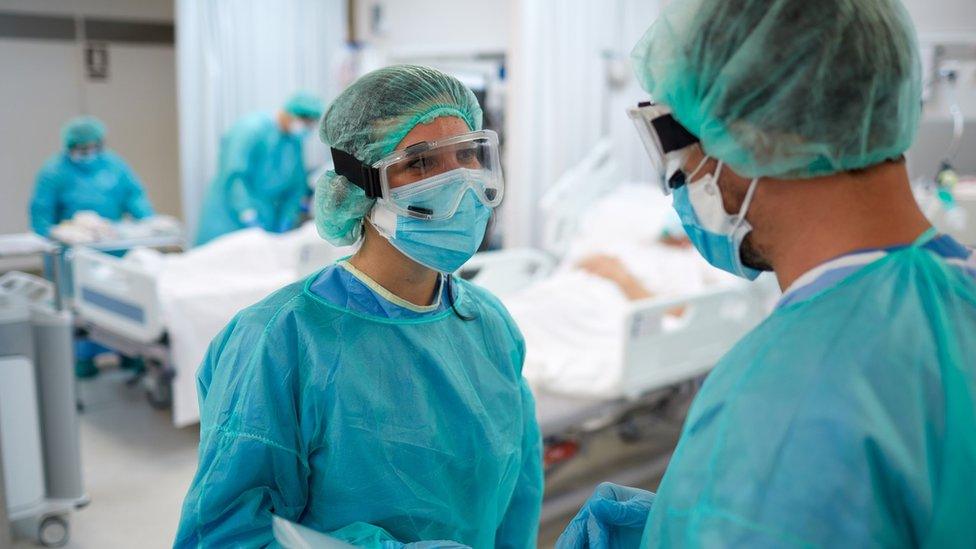
- Published17 June 2021

- Published12 December 2020
